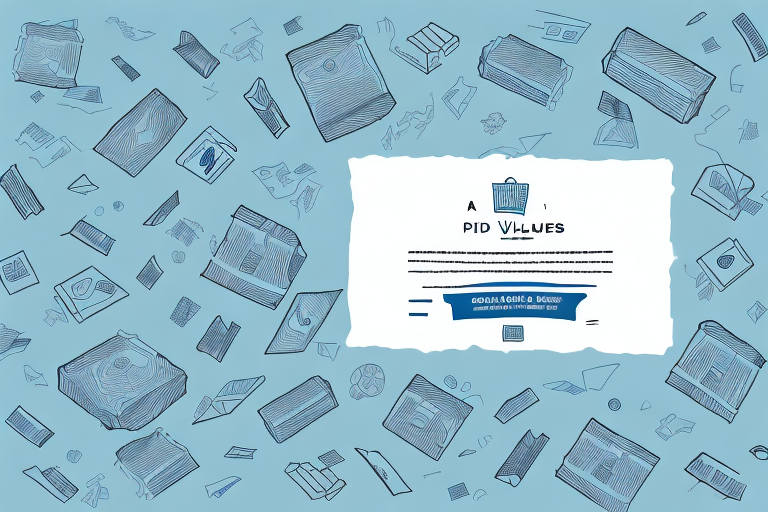Understanding Declared Value in Shipping: Definition and Importance
When shipping goods, one critical factor to consider is the declared value of the shipment. Declared value is the amount a shipper declares for their goods, which determines shipping fees and provides insurance coverage in case of loss or damage. Accurately declaring the value ensures that businesses are adequately protected and can manage shipping costs effectively.
What is Declared Value?
Declared value represents the monetary worth of a shipment as declared by the shipper. It is the maximum amount a carrier is liable to compensate in the event of loss or damage. This value influences both the shipping fees and the necessary insurance coverage.
It's important to distinguish between declared value and the actual value of the shipment. While the actual value may differ, the declared value is what carriers use to determine their liability.
Determining the Appropriate Declared Value
Accurate declaration is crucial. Underdeclaring can lead to insufficient compensation, whereas overdeclaring may result in unnecessary higher shipping fees and insurance premiums. Consulting with carriers or shipping experts can help determine the appropriate declared value for a shipment.
Reasons to Declare the Value of Your Shipment
Declaring the value of your shipment is essential for several reasons:
- Compliance with Carrier Requirements: Most shipping carriers require a declared value to process shipments.
- Insurance Coverage: The declared value helps determine the level of insurance coverage needed.
- Financial Protection: In case of loss or damage, the carrier's liability is limited to the declared value.
- Customs Clearance: Accurate declared value aids in the calculation of duties and taxes, preventing delays.
- Inventory Management: Knowing the value of shipped items assists in tracking inventory and preventing stockouts.
Declared Value vs. Insurance Coverage
While declared value and insurance are related, they are not identical:
- Declared Value: Determines the carrier's liability and affects shipping fees.
- Insurance Coverage: Provides additional protection beyond the declared value, covering gaps that the carrier might not.
It's advisable to purchase separate insurance to ensure comprehensive coverage. Understanding the carrier's insurance policies and their exclusions is vital for full protection.
Calculating the Declared Value of Your Shipment
Calculating declared value involves:
- Summing the total value of all goods in the shipment.
- Adding additional costs such as freight charges, packaging, and any other relevant fees.
- Considering applicable taxes or duties based on the destination country's regulations.
Accurate calculation ensures appropriate insurance coverage and avoids overpaying for shipping services.
Avoiding Common Mistakes in Declared Value Declaration
Shippers often make errors when declaring shipment values. Common mistakes include:
- Underdeclaring Value: Attempting to reduce shipping fees can lead to insufficient赔偿 in case of loss or damage.
- Overdeclaring Value: Inflating the shipment value results in higher shipping and insurance costs.
- Poor Documentation: Inaccurate descriptions of shipment contents can cause customs delays or seizures.
- Ignoring International Regulations: Different countries have varying requirements for declared values, leading to potential penalties.
Ensuring accuracy and compliance with all regulations is essential for smooth shipping operations.
Best Practices for a Smooth Shipping Process
Implementing best practices can enhance the shipping process:
- Accurate Documentation: Include detailed information about shipment contents, value, and additional costs.
- Proper Packaging: Use sturdy materials to protect goods during transit and label shipments clearly with declared values.
- Insurance Procurement: Purchase adequate insurance coverage to complement the declared value.
- Carrier Comparison: Compare rates and services from multiple carriers to find the best fit for your shipping needs.
- Stay Informed: Keep abreast of international shipping regulations and customs requirements to avoid delays.
Adhering to these practices ensures that shipments are handled efficiently, safely, and in compliance with all necessary regulations.
Role of Customs in Verifying Declared Values
Customs officials play a pivotal role in verifying the declared values of international shipments. They assess documentation to ensure accuracy and compliance with import/export regulations. Discrepancies in declared value can lead to:
- Delayed shipment clearance.
- Additional duties and taxes.
- Potential fines or shipment seizure.
To mitigate these risks, shippers must provide precise and truthful declared values, supported by accurate documentation.
Consequences of Incorrectly Declaring Shipment Value
Incorrectly declaring the value of a shipment can lead to significant consequences:
- Financial Loss: Underdeclaring limits compensation from carriers, while overdeclaring increases shipping costs.
- Legal Issues: Misdeclaring values can result in legal penalties and loss of trust with carriers and clients.
- Operational Delays: Inaccurate declarations can cause shipment hold-ups at customs, disrupting supply chains.
Ensuring accurate value declaration is not just a legal requirement but also a best practice for maintaining efficient and cost-effective shipping operations.
Enhancing Shipping Efficiency Through Declared Value Management
Effective management of declared values can optimize shipping processes:
- Cost Optimization: Accurate declarations prevent overpaying for insurance and shipping fees.
- Risk Mitigation: Properly declared values ensure adequate coverage against potential losses.
- Streamlined Operations: Accurate documentation facilitates faster customs clearance and reduces delays.
By strategically managing declared values, businesses can enhance their overall shipping efficiency and reliability.
Conclusion
Declared value is a fundamental aspect of the shipping process, influencing costs, insurance coverage, and liability. By understanding its definition, accurately calculating values, avoiding common mistakes, and adhering to best practices, shippers can ensure their goods are protected and shipping operations run smoothly. Additionally, staying informed about international regulations and maintaining clear documentation are essential for avoiding complications and ensuring successful deliveries.
For more detailed information and expert advice on shipping and declared values, visit ShipScience.






















